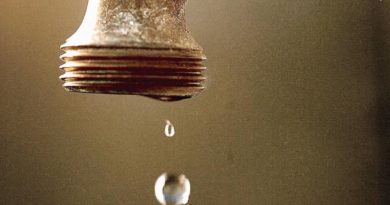Krevetski: Economic possibilities | Commentary

Many Rutlanders like myself believe Rutland could lead the country in economic revitalization by voluntarily removing from our drinking water, the neurotoxic fluorosilicic acid, an industrial waste product that accumulates in our bodies over time. Our community has been drinking this poison in our city water since 1984. I was hopeful the city could see that the use of clean, unfluoridated water in future food production could be a huge asset in our city’s economic recovery and revitalization.
The big blue “elephant” building sits idle next to the Vermont Farmers Food Center as foodies have been waiting for the day when farmers grow food that could be processed and distributed from that site with clean water and a rail system built to distribute our good Rutland County food far and wide. Potatoes grow well here so why not potato chip manufacturing. We all love and buy potato chips regularly. Many of us also have rhubarb patches our elders once planted for us. Yet presently, Vermont is importing rhubarb soda made in the Netherlands. Why not a Rutland bottling plant making a delicious rhubarb soda that is good for you. Why not a yogurt or ice-cream plant? Rutland tomato sauce? Meatballs, anyone? Full-scale food production without harmful chemicals? Exactly what most people are looking to buy these days to go with their Rutland-made beer, wine or rhubarb coolers.
The fluoridation issue will be debated in the courts on June 8 when the EPA will try to defend this practice politically as the science of fluoridation shows the chemical to be neurotoxic to our children. Let us hope science prevails over the politics of selling a neurotoxin to municipalities to contaminate our excellent water supply in the name of health.
Stay tuned while Rutland leadership mourns the loss of a downtown hotel. An open to the public Food Innovation Center could be built right downtown at that Berwick site where a trained Rutland workforce can learn best practices in food industry production and distribution. If only Rutland leadership would stop drinking the neurotoxic water, they could see clearly that investing in and developing Rutland’s food infrastructure must start with clean water minus the neurotoxin already affecting the health of Rutland City, especially our children.
Kathleen Krevetski, retired RN, lives in Rutland City.
*** This article has been archived for your research. The original version from Rutland Herald can be found here ***


